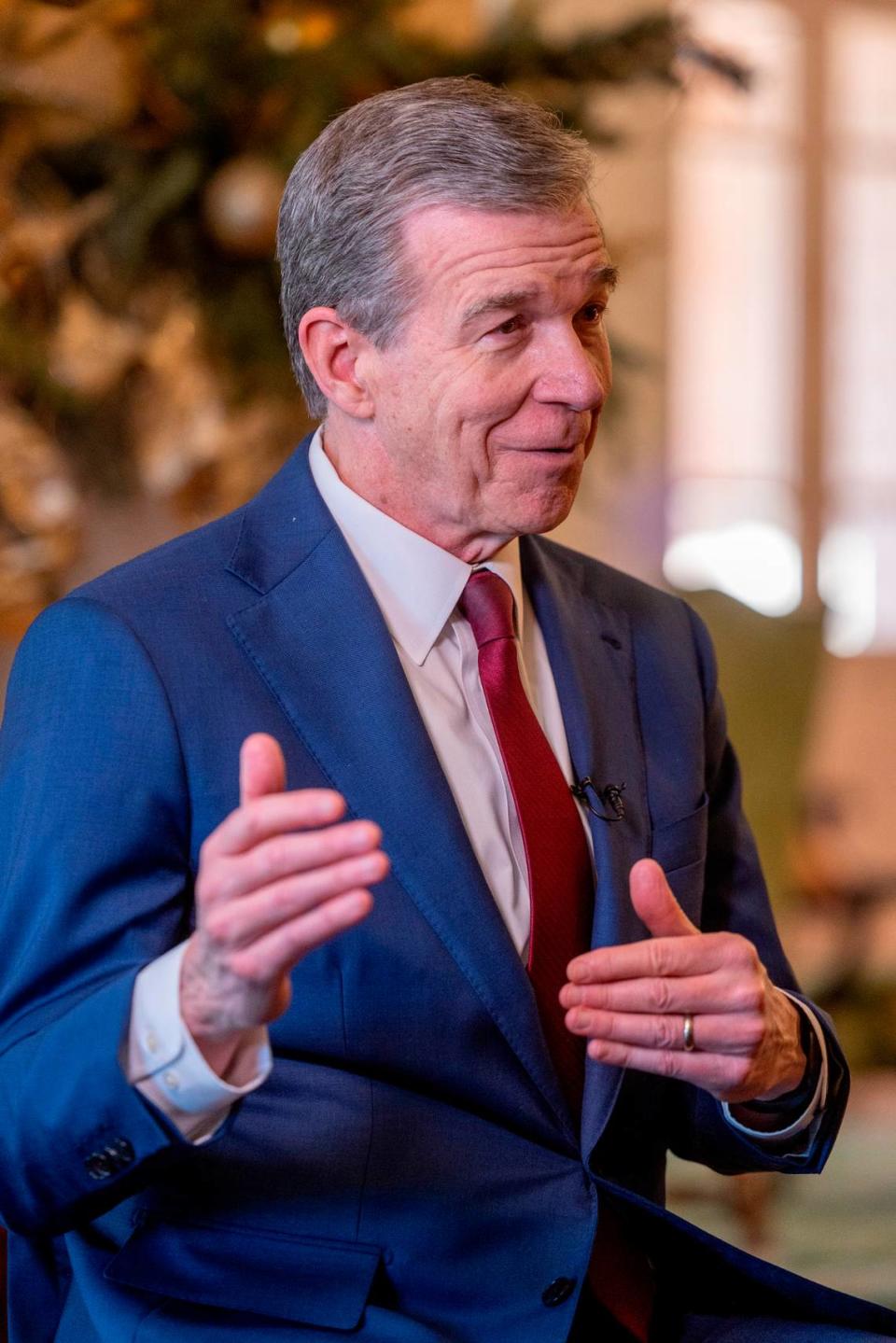What NC Gov. Cooper wants for the final year of his term, from elections to schools
- Oops!Something went wrong.Please try again later.
Gov. Roy Cooper is entering his final year as a two-term governor. The Democrat has led North Carolina over seven years of divided government, with him on top of the executive branch and Republicans controlling the General Assembly. That will remain the situation for his eighth year in office.
In the 2024 election year, Cooper will play a role in working to re-elect President Joe Biden and to elect state Attorney General Josh Stein as governor.
The News & Observer sat down with Cooper for an interview at the Executive Mansion in downtown Raleigh for his take on his upcoming year and what he’ll do to help elect more Democrats.
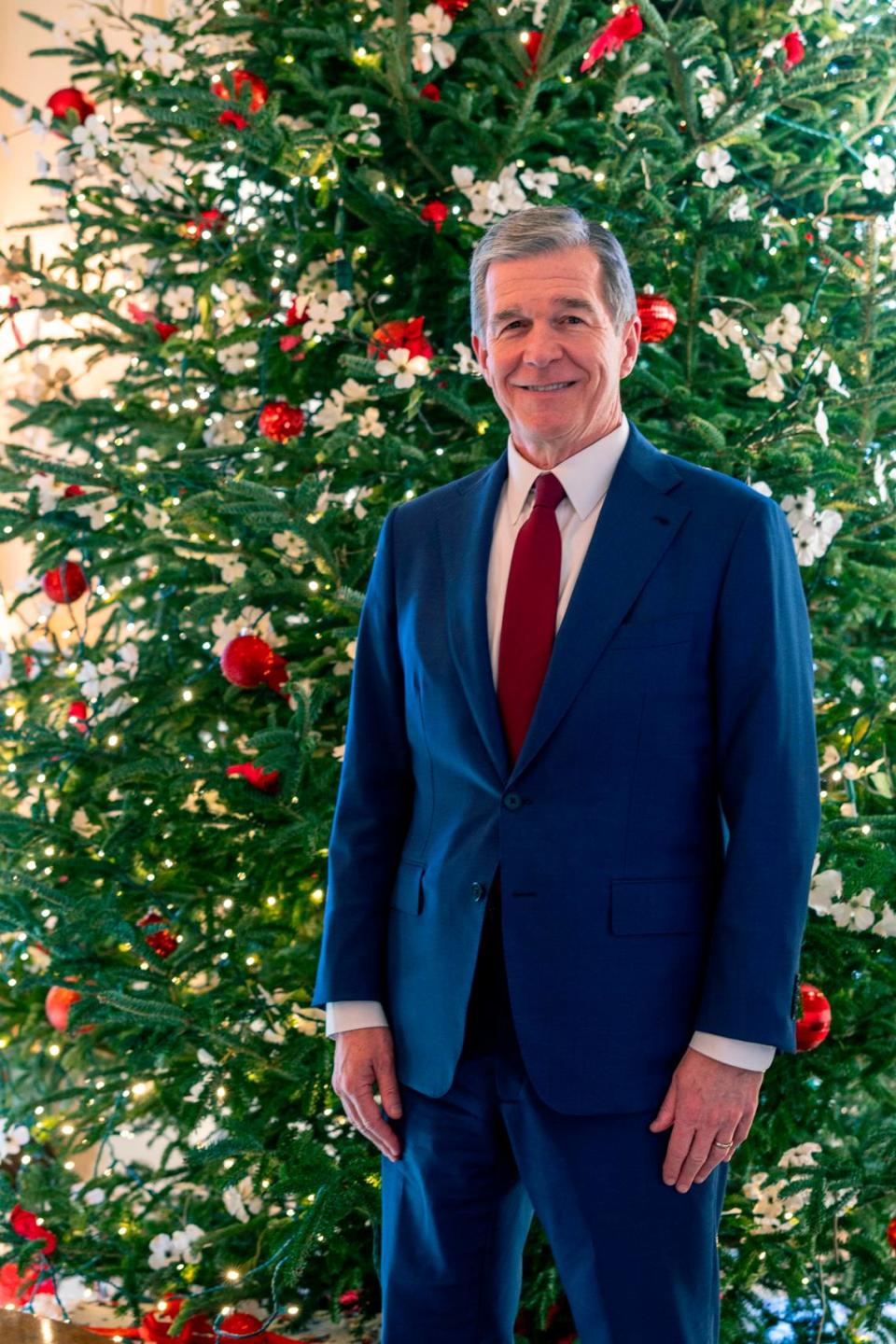
Re-electing Biden
Cooper is on the Biden-Harris 2024 campaign’s National Advisory Board, which is led by former U.S. House Speaker Nancy Pelosi and includes several other governors, senators and members of Congress.
Cooper said he will continue to do some “surrogate” work for Biden. That means making the case directly to voters, making media appearances on Biden’s behalf and using his donor network for Biden, the Associated Press reported when Biden-Harris announced the Democratic coalition in May.
“I think that the future of our state is so important that I’m going to be — even though I’m not personally on the ballot — I’m going to be working as if I were,” Cooper said. Along with campaigning for Biden, he said he’s “going to work to get Josh Stein elected as governor and to work to break the supermajority in the state legislature.”
North Carolina voters chose Trump or Biden in 2020, but it was close in what is considered a swing state. The largest voting group in North Carolina are unaffiliated voters, with 2.69 million as of December, followed by 2.41 million registered Democrats and then 2.21 million Republicans, according to the State Board of Elections.
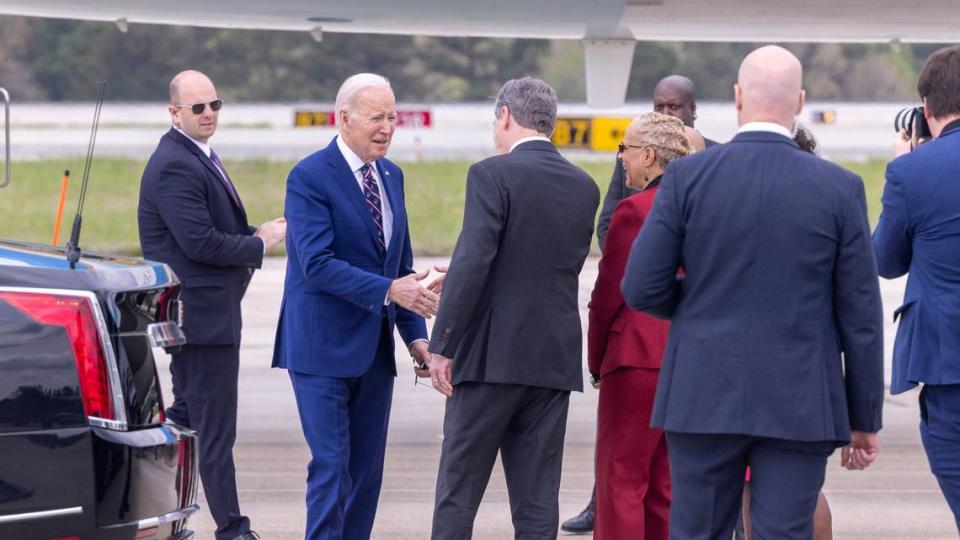
Cooper sees newcomers to North Carolina having the potential to change the state’s voting demographics compared to 2020. He wants to get the message out about a “clear contrast” between Biden and Trump in what could be an upcoming rematch between the candidates.
Abortion law and the election
Cooper thinks abortion will be a prominent issue in the 2024 elections. After Republicans gained a veto-proof supermajority this year, when Mecklenburg County state Rep. Tricia Cotham switched parties from Democrat to Republican, they passed Senate Bill 20, restricting abortions after 12 weeks of gestation, with some exceptions.
“There was an abortion ban instituted in North Carolina because of one vote. And we could have avoided that, and could have avoided getting politicians into the exam room with women and their doctors, and we could have preserved women’s reproductive freedom,” Cooper said.
“But we know that this ban is not as severe as in some other states, and many Republicans have talked about coming back and doing more,” he said.
Cooper said some women and families may not move to North Carolina because of the new abortion law and that may hurt the state economically.
While Cooper is backing Stein, the Democratic frontrunner in the gubernatorial primary, Stein’s opponent could be Republican gubernatorial primary frontrunner Lt. Gov. Mark Robinson.
Robinson, whose now-wife once had an abortion, believes there should be a total abortion ban.
What Cooper says about Robinson
Robinson won office as lieutenant governor in 2020 as a grassroots candidate who had never previously held office, but gained attention for a viral video of a pro-Second Amendment speech at a Greensboro City Council meeting.
In North Carolina, the governor and lieutenant governor do not run as a ticket, and are often from opposing parties.
When the governor is out of state, the Constitution allows the lieutenant governor to serve as acting governor. While Cooper has traveled previously, only this fall did Robinson use a trip to take action. He issued a proclamation in solidarity with Israel, along with a day of prayer, soon after the Israel-Hamas war began.
The lieutenant governor also used the moment to walk back antisemitic comments he had made previously on social media.
He told reporters in October that his Facebook posts were “poorly worded” and that now he and others were “dedicated to stamping out antisemitism wherever we find it. ...There is no antisemitism standing here in front of you, and I can definitely say in the state of North Carolina, the majority of North Carolinians feel the same.”
Cooper said Tuesday that Robinson acted for “purely political purposes.” Cooper said he supports Stein for governor because Stein wants North Carolinians to be healthier, educated and have good paying jobs.
“And we need somebody who’s focused on the ground, working to make those things happen, and instead of trying to whip up their political base with hate speech, and that’s what you have with the lieutenant governor,” Cooper said.
Cooper said that aside from endorsing Stein, he does not anticipate getting involved in any other state primary this election.
Medicaid expansion
A hallmark of Cooper’s second term has been the drawn-out negotiations, and finally legislation, to expand Medicaid.
Republican leaders joined Cooper at the mansion in the spring to sign the deal into law, but the start of expansion hinged on the passage of the state budget. With the budget coming late, as it has more often than not in recent years, Medicaid expansion started in North Carolina on Dec. 1.
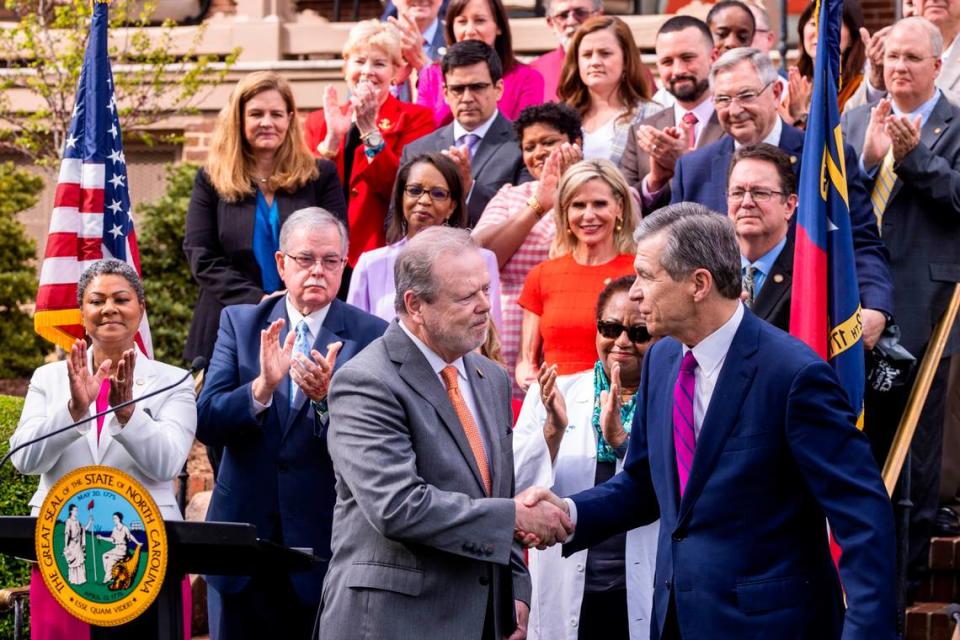
“There were several times where we had thought that it happened, and then that it might not happen. ... When it became real to me was on Friday, Dec. 1, and I was actually in an enrollment center in Charlotte and talked with people who had just signed up for Medicaid,” Cooper said.
“I saw people with tears in their eyes. I saw people who told me that this is the first time in their adult life they actually had health insurance, and it made it very real,” he said.
“I think obviously, it was long overdue. But it was time for it to happen. And I’m glad that we’re able to get 600,000 more North Carolinians the health coverage that they deserve, and it’s gonna help our economy because a lot of these people are working. They couldn’t afford health insurance. Now they can, so that was a good day,” he said.
Education and the 2024 legislative session
Cooper led the state’s response to the COVID-19 pandemic in his last term and into this term. Medicaid expansion was a priority of his for much longer, as has public education funding. Cooper said when he became governor in 2017, he developed a mission: “I want a North Carolina where people are better educated, where they’re healthier, and they have more money in their pockets,” he said.
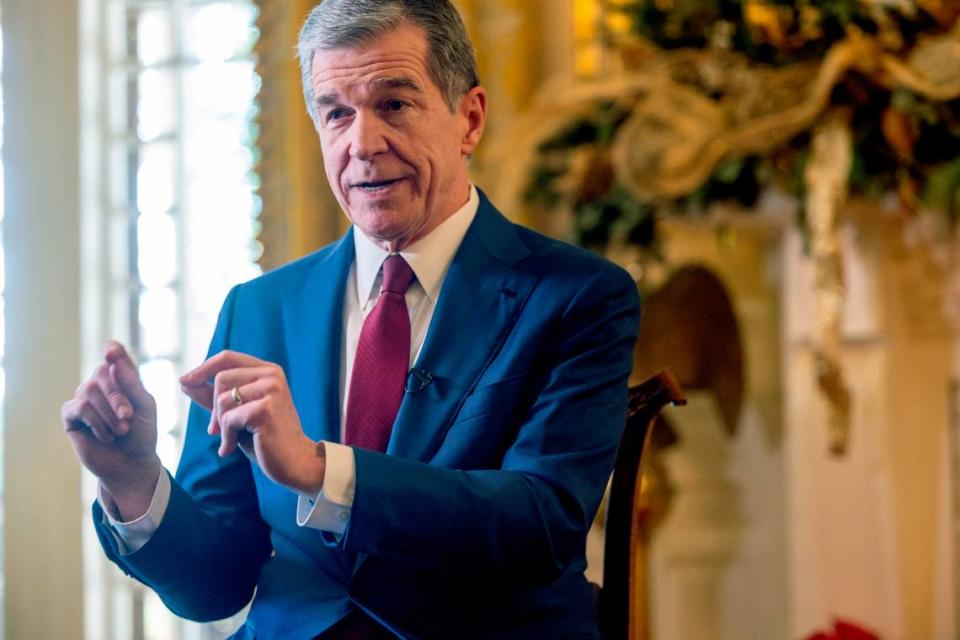
With Medicaid now expanded, Cooper wants to work this coming year on helping public school students and teachers. He plans to ask the business community to be more involved with the discussion — especially when it comes to pay raises set by the General Assembly — as workforce is the business community’s number one issue.
Cooper said that while he disagrees with Republicans on education issues like private school vouchers, which Republican lawmakers expanded this year, they agree on wanting great teachers and principals in all schools.
“So we need to turn our focus on how do we attract and retain really good people in those important positions. And one thing you gotta do is pay them and treat them with respect and provide them with professional development,” he said.
Cooper wants higher teacher pay, particularly performance-based pay that Republicans may support funding.
The General Assembly’s legislative session that begins in April is known as the “short session” because the state budget that passed this year is a two-year spending plan. However, lawmakers can pass another budget with additional raises for teachers and state employees. Cooper usually pushes for higher raises than Republican budget writers propose.
He also hopes to attract more business to North Carolina with increased federal funding coming to the state for high-speed internet expansion and transportation from roads to airports.
Cooper welcomed U.S. Transportation Secretary Pete Buttigieg to Raleigh recently as they marked more than a billion dollars in a federal grant for North Carolina for a new high-speed rail line.
Aside from campaigning for other Democrats, Cooper will continue to work on infrastructure and education in 2024, and said he hopes Republican lawmakers will “stay away from more abortion bans and cultural wars in our public schools.”
